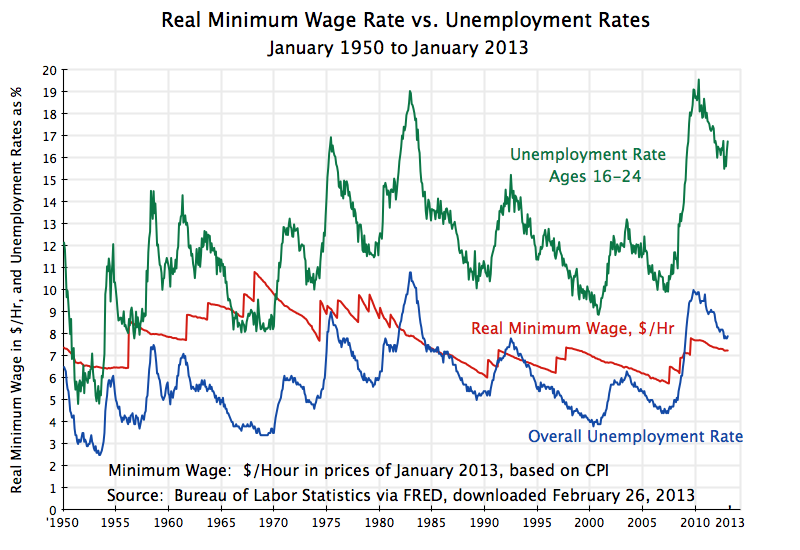Of course unemployment doesn't rise when employers willingly pay higher wages, nimrod.
The issue is when they are forced to do so and can't afford it without cutting hours or losing employees.
That's a testable claim. Let's take a look at the historical record.
Here's a graph of the minimum wage, low wage employee unemployment, and general unemployment. The argument is that when the minimum wage goes up, minimum wage earners are laid off. If this is true, there should be proprotionately more unemployment for those workers than for the population generally.

Instead, we see that low-wage unemployment closely follows the general unemployment, and doesn't follow minimum wage at all. In fact, as you see, low-wage unemployment was lower when the real minimum wage was higher.
Now we all understand that you're not the brightest guy in the world, and you are suspicious of any math that goes beyond what you can do without taking off your shoes.
But there it is.
